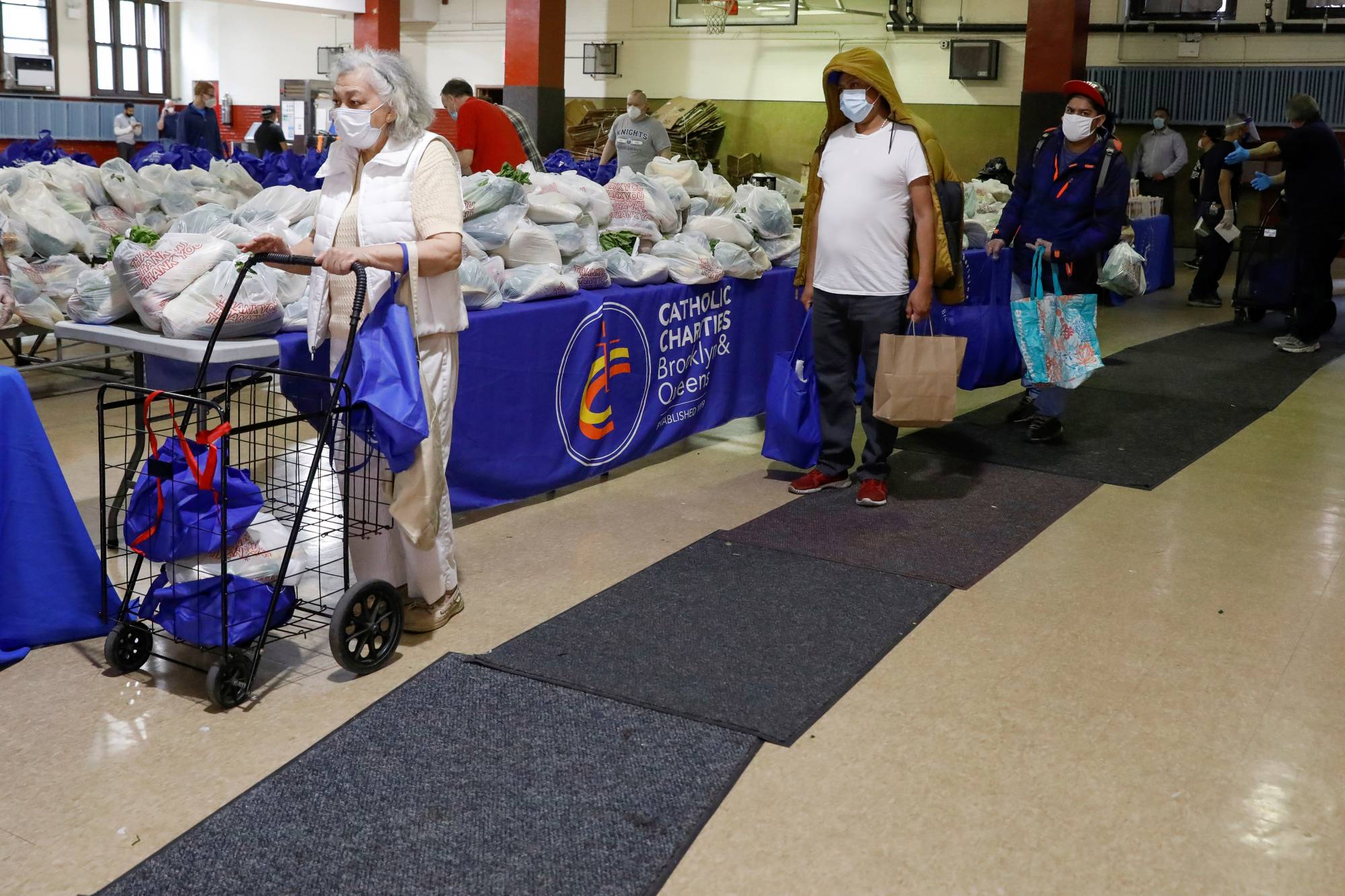COVID-19 made hunger a critical concern as millions of Americans lost their jobs, families were homebound and supply chains disrupted. Now inflation and war are making it worse.
Ensuring that people had enough food to feed their families wasn't a partisan issue during the pandemic, when Congress approved relief measures to boost aid. And it shouldn't be a partisan issue now, as economic and environmental pressures far beyond the control of any individual make food insecurity an enduring and defining crisis of our time.
One in six Americans relied on food banks to survive last year — 53 million people compared with 40 million before the pandemic. Now, even as the pandemic ebbs, the number of hungry Americans is rising again. Grocery prices have jumped 12% in the past year — the sharpest increase since 1979. Some of the nation’s largest food-relief organizations, such as the Atlanta Community Food Bank, have recently reported spikes in demand as significant as those in the early months of 2020.



















With your current subscription plan you can comment on stories. However, before writing your first comment, please create a display name in the Profile section of your subscriber account page.